
Amy-Leigh Rowe
Postdoctoral Researcher in Mental Health and Substance Use, University of Sydney
Dr Amy-Leigh Rowe is a Research Fellow at the Matilda Centre for Research in Mental Health and Substance Use at the University of Sydney. She holds a Bachelor of Applied Science (Sport & Exercise) from the University of Sydney (2011), a Bachelor of Psychological Studies with first class Honours from Western Sydney University (2018), and a PhD in Psychology from Western Sydney University (2023). Amy’s PhD research explored the relationship between bipolar disorder and trauma, with a specific focus on the complex interplay between lifetime trauma, stressful life events, and social support, in the experience of illness and recovery. Amy's current research focuses on the development, evaluation, and taking to scale, of preventive eHealth interventions for young people. Amy is coordinating the OurFutures Vaping Study, which is a large multi-site RCT (40 schools across NSW, QLD, and WA) and the first rigorous evaluation of a school-based e-cigarette prevention program in Australia. Amy is also the lead consultant for the NSW Ministry of Health in the development of their next health and well-being policy for young people. Additionally, Amy co-leads the development of a new eHealth module focused on healthy relationship and consent education for secondary school students.
Less ![]()

Ana Ferrer
Professor of Economics, University of Waterloo
Ana Ferrer is a professor at the University of Waterloo and a Research Fellow at IZA (Institute of Labor Economics). A graduate from Boston University, she moved to Canada to work at the University of British Columbia and the University of Calgary before coming to Waterloo. She developed her research career in Canada focusing on labour markets, education, immigration and family economics. Her latest work has focused on the outcomes of immigrants to Canada, particularly immigrant women. Her research is published in journals such as The Journal of Human Resources, The Journal of Labour Economics, The Canadian Journal of Economics. Professor Ferrer is also involved with the labour community of researchers internationally and in Canada. She serves as the immigration-subject editor for IZA World of Labour, a publication aimed at disseminating economic research in non-academic circles. She is also the Secretary of the Canadian Economic Association (CEA) and the founder of the Canadian Labour Economic Forum (CLEF) a group aiming to facilitate research discussion and promote networking opportunities among Canadian researchers in labour economics.
Less ![]()
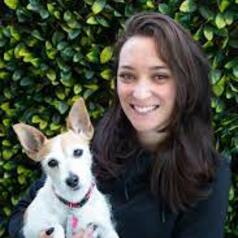
Ana Goncalves Costa
PhD student, University of Adelaide
Ana came back to university because she had too many questions on animal behaviour, and not enough answers. She is particularly passionate about helping dogs and humans live together successfully, through education, understanding, and researching the human/canine experience.
In 2019 Ana published her honours research on sales of dogs on gumtree and is currently a PhD candidate at the University of Adelaide. Her current research centers on understanding puppy owners and their experiences, as well as researching the recently discovered effect of the “puppy blues”.
Ana has a background working with dogs who suffer from anxiety disorders and is a graduate of the Delta Institute. She currently lives with a special needs little dog, “Nervous Nina”.
For more information see: https://researchers.adelaide.edu.au/profile/ana.goncalvescosta
Less ![]()

Ana Mantilla
Senior Research Fellow, School of Educational Psychology and Counselling, Monash University
Ana has worked across projects in education and health in urban, regional, and remote locations. Her research focus has been mostly on culture, pedagogy, diversity, and inclusion. She’s has worked in multidisciplinary teams that have co-designed and delivered culturally responsive and evidence-based programs for children, adolescents, families, educations, and institutions, and works closely with industry and government.
Less ![]()
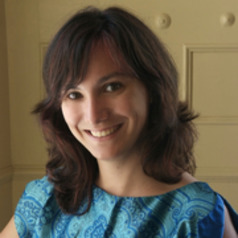
Ana Matran-Fernandez
My latest research focuses on applyting collaborative BCIs to visual search. We have proven that by merging EEG signals from several users we can locate and localise targets within streams of images (both temporally and spatially). This topic relates to several different fields, such as neuropsychology, artificial intelligence and signal processing.
Research interests:
Brain-Computer Interfaces, Collaborative Brain-Computer Interfaces, visual search
Less ![]()
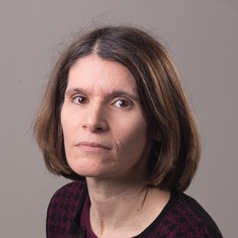
Ana Prados
Senior Research Scientist, University of Maryland, Baltimore County
Senior Research Scientist at the University of Maryland Baltimore County, with 20 years’ experience in research applications of satellite remote sensing. Dr. Prados developed the internationally recognized Applied Remote Sensing Training Program for NASA, enabling stakeholders worldwide to integrate satellite data into environmental management. Unique ability to translate scientific information for diverse audiences, and 15 years’ experience working with local and state government to develop air quality and climate change policies. Her combination of scientific, environmental policy, and communications skills allows her to work effectively with scientists, businesses, and government leaders to integrate environmental data into decision-making. Dr. Prados holds a Ph.D. in Chemistry and a Master’s in Public Policy from the University of Maryland College Park. http://linkedin.com/in/anaprados
Less ![]()

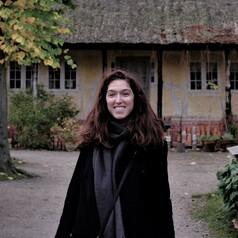
Ana Alonso Curbelo
PhD Candidate, School of Social and Political Sciences, University of Glasgow
Ana Alonso Curbelo's PhD Topic is The Role of the News Media in Perpetuating Electoral Fraud Myths in the UK and US.
Through multiple Quantitative Text Analyses, this project seeks to examine the British and American news media’s role in perpetuating myths about voter and electoral fraud in UK and US elections. The central research questions include whether news coverage is based more on fact or elite rhetoric, the role of tabloids and the partisan press in the UK relative to the US, what policies are linked to fraud (e.g., immigration), and the particular frames used by the media.
Less ![]()

Ana Blanco Canales
Profesora Titular de Lengua Española, Universidad de Alcalá
Doctora en Filología Hispánica
Profesora Titular de Lengua Española
Less ![]()
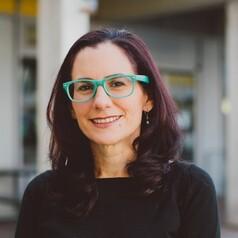
Ana Carolina Garriga
Professor of Political Science, University of Essex
Carolina Garriga is a political economists in the Department of Government at the University of Essex, and Deputy Director of the Essex Summer School in Social Science Data Analysis. Her research interests include international and comparative political economy, and international cooperation. Her current work focuses on central banks' governance, monetary institutions in developing countries, foreign direct investment, and the political economy of conflict. Her research has been published in the Journal of Politics, International Studies Quarterly, the Journal of Peace Research, the Journal of Conflict Resolution, Governance, Regulation & Governance, Economic Modelling, Economic Analysis and Policy, and other outlets.
Less ![]()
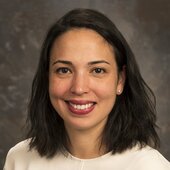
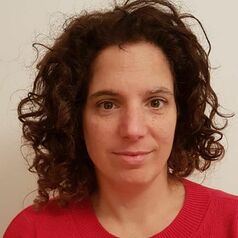
Ana Ines Langer
Senior Lecturer in Political Communication, University of Glasgow
I joined the subject of Politics at Glasgow in September 2006 from the London School of Economics (LSE), where I completed my PhD in Political Communication. My research focuses on political communication: how politics is mediated and how this affects the conduct and nature of the democratic process. Most of my work has focused on the UK and Scotland but I have also done comparative work about countries including Argentina, Germany and China.
During the early years of my career, I focused on the personalisation of politics, especially its media dimensions. I still work on the topic but, in the last few years, I have become keenly interested in understanding how the hybrid media environment is affecting ‘classic functions’ of political communication and its impact on democracy. I have recently published work about the Scottish independence referendum campaigns and have work in progress about non-party campaign organisations or ‘satellite’ campaigns.
Most of my current work focuses on analyzing how different types of media shape discourse and especially the policy process. This includes a recent paper about Windrush, published in the International Journal of Press/Politics, and a project (funded by NIHR & MRC) about the role of social media on shaping the Chinese government’s policy response during COVID. I have also started to explore how different platform affordances shape to what extent and how topics are politicised.
Less ![]()

Ana Lilia Molina Hernández
Postdoctoral research fellow, Universidad Nacional Autónoma de México (UNAM)
Less ![]()
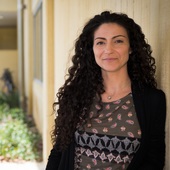
Ana M. M. Sequeira
Associate Professor, Research School of Biology, Australian National University
Less ![]()

Ana María Iglesias Botrán
Profesora del Departamento de Filología Francesa en la Facultad de Filosofía y Letras. Doctora especialista en estudios culturales franceses y Análisis del Discurso, Universidad de Valladolid
Profesora Contratado Doctor en la Universidad de Valladolid. Doctora especialista en Estudios culturales franceses y Análisis del Discurso.
Autora de "Y lo cantábamos por ti. Historia de Francia a través de sus canciones" (Ediciones Universidad de Valladolid, 2014).
Directora de la Universidad Permanente Millán Santos (Universidad de Valladolid)
Less ![]()
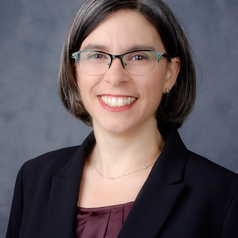
Ana S. Iltis
Professor of Philosophy; Carlson Professor of University Studies; and Director, Center for Bioethics, Health and Society, Wake Forest University
I hold a PhD in Philosophy from Rice University and specialize in bioethics. I have been part of multiple NIH-funded research teams and served as President of the American Society for Bioethics and Humanities. I publish widely in bioethics, and I am a journal editor as well as being a member of the editorial board of multiple journals in my field.
Less ![]()
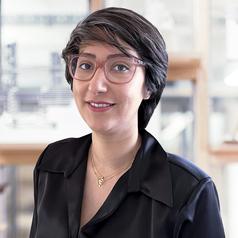
Anahita Sal Moslehian
Postdoctoral Research Fellow, HOME Research Centre, Deakin University
Anahita Sal Moslehian is a Postdoctoral Research Fellow with the HOME Strategic Research & Innovation Centre at the School of Architecture & Built Environment. With background qualifications in Architecture, Anahita's research interests are building design innovation, hospital design evolution, health-promoting building design, social and affordable housing, and family-friendly apartment design.
In her PhD research, Anahita employed a mixed grounded theory methodology to conceptualise the nature of innovation in hospital building design. Her in-depth historical analysis of hospital design evolution has yielded a framework that highlights the main components of the innovation ecosystem, its overall behaviour, the most influential contextual factors and their interplay, and maps generative interactions that support innovation processes over the past 100 years.
Anahita is an EDAC-certified researcher and her passion lies in exploring how the design of our everyday spaces can enhance human health and wellbeing, care, and cure. She is also keen on understanding the relationship between architectural design and its socio-political contexts, in which the built environment is designed and experienced. Although healthcare buildings remain her primary area of interest, her research also encompasses housing and workplaces to better understand the relationship between the built environment and health outcomes. She has applied the systematic thinking, developed during her PhD, to study the design of health-promoting environments, social and affordable housing, and family-friendly apartments within the Australian context. Anahita has actively contributed to four key projects at HOME, including her latest study exploring the impacts of living in compact modular units on the transitioning process of homeless men. Further, in 2022, she collaborated with Biophilia Lab, where her research centred on the application of the biophilic design framework in the design of new mental health facilities in Barwon Health.
Less ![]()

Anaïs Remili
PhD Candidate, Renewable Resources, McGill University
Bonjour, Hi (as they say in Montréal). I am a French PhD candidate at McGill University. I am submitting my thesis in July, and will defend my doctorate in the fall (2023). I work on the feeding ecology and its role in contaminant accumulations in North Atlantic killer whales.
Research Highlights:
I am particularly interested in dietary chemical tracers like fatty acids or stable isotopes in apex marine predators. As the ultimate marine predators, killer whales accumulate high concentrations of biomagnifying contaminants like polychlorinated biphenyls (PCBs), organochlorine pesticides, or brominated flame retardants. These contaminants may threaten the whales' health and their long-term population stability. Hence, by measuring various feeding tracers in the whales' blubber, we can use models to reveal their diets. Understanding killer whales' feeding ecology is key to assessing the risks caused by the accumulation of toxic contaminants.
Science Communication:
I am a bilingual science communicator (??/??) and a huge whale nerd. I am the founder and chief editor of Whale Scientists, a platform I created to share early career researchers' passion for marine mammals with the public.
Less ![]()
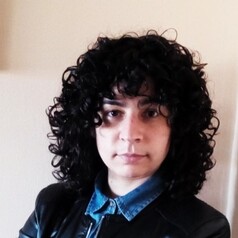
Analía López-Carballeira
Profesora e investigadora de Organización de Empresas, Universidade de Santiago de Compostela
Assistant Professor at Santiago de Compostela University, Spain (Department of Business Administration) and Valencia International University (Spain). Her research lines focus on corporate social responsibility, human resources management, and organizational behavior.
Less ![]()

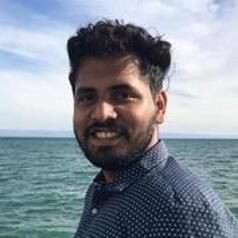
Anand Sreekumar
PhD candidate, University of Adelaide
Anand Sreekumar is a PhD candidate at the Department of Politics and International Relations, University of Adelaide. His research interests span inter alia South Asia and the Indo-Pacific, political economy, intellectual history and nuclear issues.
He holds an MPhil in diplomacy and disarmament from the Centre for International Politics, Organization and Disarmament (CIPOD) at the School of International Studies, Jawaharlal Nehru University. He also has an integrated Masters in Development Studies from the Indian Institute of Technology, Madras.
Less ![]()
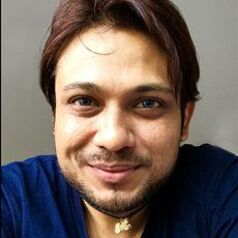
Anandadeep Mandal
Associate professor in finance, University of Birmingham
Dr Anandadeep Mandal is an applied mathematician with both theoretical and empirical interests in the field of quantitative finance. He also has a keen interest in formulating strategies through ‘data-driven problem solving’ approach. His research underpins a desire to learn, understand and explain the complex dynamics of the key issues in the society ranging from financial economics to healthcare.
Less ![]()
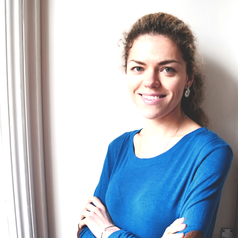
Anastasia Denisova
Senior Lecturer in Journalism, University of Westminster
Anastasia Denisova is a Senior Lecturer in Journalism at CAMRI, University of Westminster. She has a doctorate in social media and researches Internet memes, viral storytelling and the role of digital communication for political deliberation.
Before starting her academic career, she worked as a journalist in Russia for over a decade in the capacity of television news editor and reporter for NTV Broadcasting company, editor at Aeroflot Inflight magazine, and a freelance reporter and columnist for the major magazines, including GEO, Conde Nast Traveler, Vogue, Marie Claire and many others. Her work has received the industry and community recognition, including the French government’s award for the best publication on France in Russian in 2014 (the feature for GEO Russia).
Anastasia had also been involved with UNICEF Kosovo as the media consultant of Innovations Lab, the digital hub that promotes the use of technology and Internet to empower the local youth.
Less ![]()
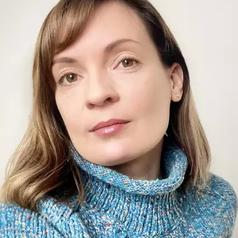
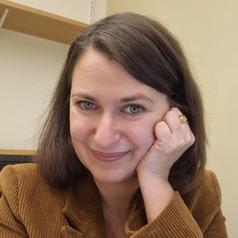
Anastasia Marshak
Assistant Research Professor of Nutrition, Tufts University
Anastasia Marshak’s research at Feinstein International Center aims to make humanitarian programming more appropriate and impartial by showing the value of and advocating for more data- and evidence-driven approaches. Her main body of work focuses on improving the field’s understanding of the drivers of malnutrition in complex contexts. As part of this she develops and applies improved methods to identify those drivers. Anastasia also supports improved programming in the areas of early marriage and the long-term impact of conflict on livelihoods and access to services applying a variety of methods, including program evaluations. Recently, Anastasia studied the effects of human rights abuses that took place during attacks on IDP camps in northern Uganda as part of a trial for the International Criminal Court (ICC). In addition to her research, Anastasia teaches introductory and intermediate statistics at the Friedman School.
Anastasia has expertise in quantitative analysis, research design, and nutrition. Prior to joining Feinstein, Anastasia worked for the MIT Poverty Action Lab and the World Bank in Sierra Leone.
She holds a B.S. in quantitative economics and international relations from Tufts University and an M.A. in economics from Boston University. She holds a Ph.D. from the Friedman School of Nutrition in the Food Policy and Nutrition Program, with a focus on humanitarian assistance.
Less ![]()
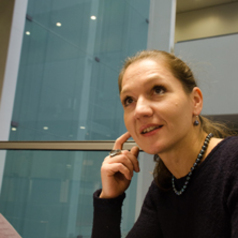
Anastasia Nesvetailova
Dr Anastasia Nesvetailova (MA Manchester, PhD Aberystwyth) joined City in September 2007. Her main research and teaching interests lie in the area of International Political Economy (IPE), finance and financial crises, globalisation and governance.
Her first monograph, Fragile Finance: Debt, Speculation and Crisis in the Age of Global Credit (2007, Palgrave), develops a Minskyan analysis of financial fragility and crises in the late 1990s. Her second monograph, Financial Alchemy in Crisis: The Great Liquidity Illusion (2010, Pluto) focuses on the elusive concept of 'liquidity' in global finance, and specifically, in the global financial crisis of 2007-2009.
Dr Nesvetailova is currently working on the political economy of financial innovation, liquidity and international financial governance.
Less ![]()
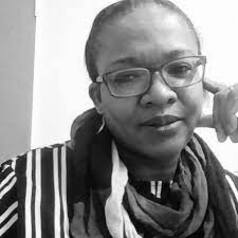
Anastasia Ugwuanyi
Senior clinical educator, department of family medicine, University of the Witwatersrand
Senior Clinical Educator at the University of the Witwatersrand, with an MBBS from the University of Nigeria , 2 Post Graduate Diplomas in Public health from the University of Liverpool and in Health Science education. MSc in Family Medicine from the University of Edinburgh.
Less ![]()
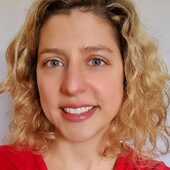
Anastasia A. Theodosiou
Infectious Diseases and Microbiology Academic Clinical Lecturer, University of Southampton
Less ![]()

Anastasia Maria Sri Redjeki
Dosen, London School of Public Relation (LSPR) Jakarta
Sarjana Strata 1 bidang Ilmu Komunikasi dari FISIP, Universitas Indonesia lulus tahun 1994 dan Strata 2 bidang Ilmu Komunikasi dari Institut Komunikasi dan Bisnis LSPR tahun 2021. Praktisi Komunikasi yang pernah bekerja di dunia ritel selama 12 tahun di sebuah perusahaan ritel teratas di Indonesia, Mitra Adiperkasa. Saat ini aktif menjadi Dosen Ilmu Komunikasi di almamaternya dan menjadi aktivis dan advokat di bidang kesehatan masyarakat di bawah organisasi TCSC IAKMI,
Less ![]()
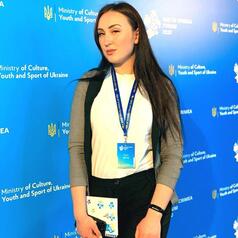
Anastasiia Chupis
Researcher and scholar at risk, Södertörn University
I am a Ukrainian researcher with a primary focus on conflict studies and peacebuilding in my academic background. Currently, I am a doctoral student at Zaporizhzhia National University in Ukraine. Since the full-scale invasion by the Russian Federation in Ukraine, I have had the opportunity to continue my research as a scholar at risk at Södertörn University in Sweden.
My main research topic is the "Peacebuilding Phenomenon in Contemporary World Politics," but my academic interests encompass a broader range of subjects. These include conflict resolution, reconciliation, documentation of war crimes, transitional justice mechanisms, engagement of vulnerable populations such as women, children, and people with disabilities in peacebuilding processes, as well as the reintegration of temporarily occupied territories in Donetsk, Luhansk regions, and the Autonomous Republic of Crimea. Additionally, I have experience spanning five years in the field of state reforms and as a representative of human rights non-governmental projects in Ukraine.
Less ![]()
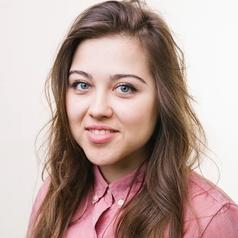
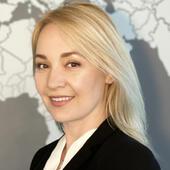

Anastassiya Mahon
Associate Lecturer in Security Studies, Department of International Politics, Aberystwyth University
My research examines the role of (in)security in policy formation, especially in illiberal regimes. I am particularly interested in seeing (in)security in politics as a process of bringing change. Specifically, I'm looking at how the fear of terrorism can completely reshape both politics and society. I am interested in Russia and Central Asia.
Less ![]()
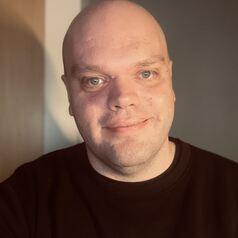
Anders Furze
Research Assistant, Melbourne Law School, The University of Melbourne
I am a research assistant at the Melbourne Law School's Intellectual Property Research Institute of Australia, studying law part-time.
Less ![]()
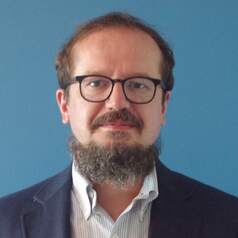
Anders Hayden
Associate Professor of Political Science, Dalhousie University
Anders Hayden is Associate Professor in the Department of Political Science at Dalhousie University, with an emphasis on environmental politics. He is particularly interested in the concept of sufficiency and related post-growth ideas and initiatives, including sustainable consumption, work-time reduction, “beyond GDP” measurement, and the “wellbeing economy.” He is the author of When Green Growth Is Not Enough (2014) and Sharing the Work, Sparing the Planet: Work Time, Consumption & Ecology (1999). He is the co-editor of the Routledge Handbook of Global Sustainability Governance (2020) and Towards Sustainable Well-Being: Moving beyond GDP in Canada and the World (2022).
Less ![]()
- Market Data

















